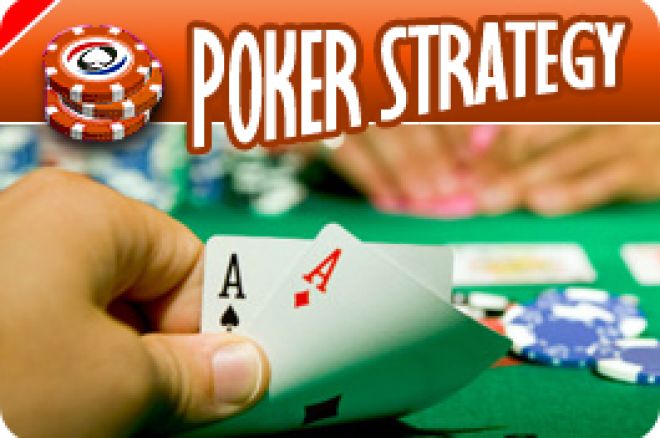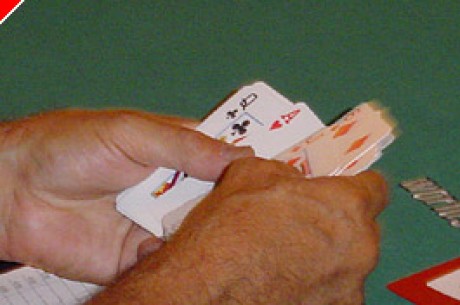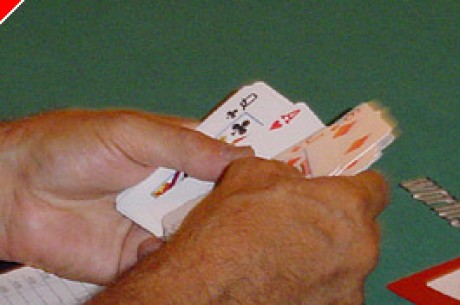Stud Poker Strategy: Time to Go, Part 2

In my last column I explained the three methods generally used by players to decide when to leave. They were: Leaving when the game is no longer any good; leaving after a predetermined time period; and leaving after a pre-set win or loss has been reached. I explained the pluses and the minuses of these methods and promised to give you my opinion and the best method to use for yourself.
Here is that method.
First of all, the method you use will depend, at least somewhat, on how experienced a player you are. Let me address the inexperienced player first.
You should not depend on your reading of the game to decide when it is time to leave. You are not skilled enough to know when the game is good or bad; and you are not disciplined enough to be sure that you will be able to leave based on so subjective a measure.
For you, I would recommend that you set a fixed time limit. Make it short at first �C perhaps only one or two hours. When that time is over, leave the game. Literally take your chips and leave the table and cash out. I know it may seem extreme but do it.
Then spend at least 20 minutes thinking about how the short session went. Were there any important decisions you had to make? Were you able to stay focused? Were you able to get a read on the other players? What do you think they thought of your play? Were you tight, aggressive, passive, loose, wild, or unpredictable?
Do this the first few times you go to a public poker room. If you're up, great. Log your win proudly. If you're down, too bad. But log it as well. No excuses. No staying longer just to get even. Take your licks or give yourself credit no matter how you do. See it as an experiment, if nothing else. There will be a next time.
Once you are a fairly experienced player, you can relax these strict guidelines somewhat. Continue to set a time limit for getting up from the table. But instead of actually packing up and leaving the table, just go for a walk and a cup of coffee away from the table. Go through the same exercise you went through before. But this time, give yourself permission to return to the game if you think conditions are favorable. By favorable I mean that you are still alert and engaged and that you have some sort of edge over the game. Ask yourself how you're doing. By that I mean not how much money you're ahead or behind but how you're playing. Are you alert? Are you focused? Do you have a good read on some of the other players? Do you have an edge over them?
Look at the other games in the room. Should you change to another table where the opposition is weaker? You should always make a point of putting yourself on the table change list so you have that option when a seat opens up elsewhere. Profit from this break by checking out the action elsewhere. Maybe there are greener pastures. Similarly, check out the players in your game. Perhaps you should move your seat to get a positional advantage. Take some time to think about this before returning to do battle again.
Your stack size does come into play �C at least until you are an experienced and confident player. You should consider how your relative stack size is affecting your play. If you're ahead, are you afraid of losing the money back? If you are, then maybe it's time to leave for good for the session. If you're behind, are you nervous about losing any more? Then too you might consider going home for the night. But if not, if you're focused, alert, and still able to play your best game, go back to the table after your break and continue for another pre-set period. After that, get up and leave for good.
As you gain experience and skill, you'll be better able to assess just how you are doing and how good the game is. When you reach this level you can afford to be more liberal with your time parameters for leaving and evaluating the game. But don't abandon them entirely. Even if you decide to stay for another hour or two because the game is particularly good, it helps to have those regular intervals when you get up and walk away from the game to think about how you're doing and just how good the game is. They give you the perspective you'll need, even as an experienced and skilled poker player, to properly evaluate the game conditions and your own condition.
As far as setting win and loss limits, my take on them is this. Use them in the context of how you are feeling about the game and your play. For example, I know that when I am down more than $1,000 in a $20/40 game that I get discouraged �C experienced though I am. I just start to feel sometimes when I've lost that amount that I'm playing underwater �C and need to get away from the game. I become distracted by a loss larger than that �C and so I leave the game �C at least for a while �C while I ponder how I will continue to be affected. Similarly, I've found that when I am up more than a few hundred near the end of when I am planning to play, that my attention becomes focused on preserving that win. When that happens I stop playing �C not continuing until the end of the session I was planning to have. I'd rather leave when I notice that my play is affected by my win or loss than continue until the time I was planning to leave.
The bottom line is this. I strongly recommend setting time limits. Either leave entirely when you reach them �C especially if you're relatively inexperienced �C or use them as rest stops to evaluate exactly how good the game is and how good you are.








